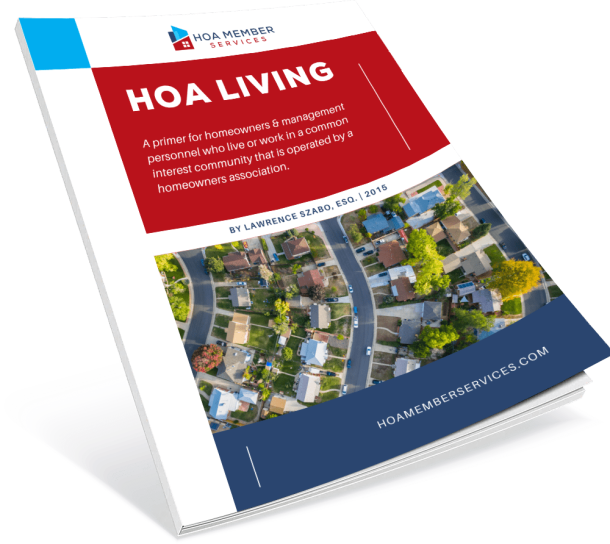If you’ve ever come home to find a new sign in your neighborhood — No parking on the street after 8 PM — you might wonder, Can they really enforce new rules without asking us first?
Here’s the quick answer: Sometimes yes, sometimes no — it depends on what kind of rule it is.
Welcome to the murky world of HOA rule changes. It’s more common (and complicated) than you might think.
This article breaks down:
- The difference between rules, bylaws, and CC&Rs (what needs a vote and what doesn’t)
- When the board can act on its own, and when a vote from homeowners is actually required
Whether you’re a curious homeowner, an HOA board member, or just tired of surprise rule changes, this guide is here to clear things up. Let’s break it all down and help you figure out whether an HOA can change rules without a vote.

What Powers Does an HOA Board Really Have?
So, can your HOA board just make up rules on a whim? Not exactly — but they do have more power than most residents realize.
Here’s what fuels that power:
- The Governing Documents: Think of these as the HOA’s rulebook. The Declaration of Covenants, Conditions & Restrictions (CC&Rs), Bylaws and Rules & Regulations lay out exactly what the board can (and can’t) do. This is where the board gets its power to enforce policies and even create new rules, as long as they stay within those original lines.
The General Rule of Thumb
The board can make rules about rules, but not change the foundations without input. This means they can generally make or tweak rules that clarify or enforce what’s already in the governing documents.
But if they’re trying to rewrite the foundation, like changing what’s allowed on your property or how dues are calculated, that typically requires a homeowner vote.

State Laws May Override the Board’s Decisions
Even if the HOA says one thing, state laws might say otherwise. For example, in California, Civil Code Section 4753 limits HOAs from prohibiting or unreasonably restricting the use of clotheslines and drying racks in an owner’s backyard.
In Florida, boards can’t just levy hefty fines without following due process.
Types of HOA Rules and What It Takes to Change Them
Some HOA rules are etched in stone (almost), while others can shift without you even realizing it. If you’re wondering how your HOA can make changes and whether they need your vote, here’s the inside scoop on the three main types of HOA rules:
- CC&Rs (Covenants, Conditions & Restrictions): These are the big, foundational rules — things like property use, architectural guidelines, and long-term obligations. Changing them usually does require a community vote. Think of these as the HOA’s constitution.
- Bylaws: These govern how the HOA itself operates — board elections, meeting procedures, and so on. Whether a vote is needed to change them depends on your state laws and your HOA’s specific setup. It’s a bit of a gray area.
- Rules & Regulations: These cover the everyday stuff — like pool hours, parking rules, and pet policies. The board can often change these without a community vote, which means updates can sneak in fast if you’re not paying attention.
Here’s a quick breakdown for reference:
| Rule Type | What It Covers | Can It Be Changed Without a Vote? |
|---|---|---|
| CC&Rs | Significant, long-term rules | Almost always NO |
| Bylaws | HOA operations & structure | Sometimes, depends on the setup |
| Rules & Regulations | Daily life & community behavior | Usually YES |
Can the Board Change Rules Without Telling You?
Short answer: they shouldn’t.
However, some try — and it’s not a good look.
If your HOA just dropped a new rule on you out of nowhere (like suddenly banning your holiday lights or that garden gnome you’ve had for years), your first question is probably: Can the HOA change rules without notice?
Here’s the deal:
Proper notice isn’t just a courtesy — it’s usually required.
That means homeowners should get advance notice of proposed changes, time to review them, and ideally, a chance to voice concerns before anything becomes official.
If your HOA board skips the notice and makes decisions in the dark, it could be violating its own governing documents or even state law.
Changed rules behind closed doors?
You’ve got options. Start by reviewing your community’s bylaws and CC&Rs. Then, consider attending the next board meeting, rallying neighbors, or if needed, seeking legal advice. Silence isn’t compliance.
HOAs are supposed to be transparent. If yours is acting more like a secret club, it might be time to hold them accountable.

Real-Life Scenarios: What’s Legal, What’s Sketchy
Let’s be honest — HOA rule changes can sneak up on you. One minute, everything’s normal; the next, you’re being told your Airbnb guests aren’t welcome or your front door color needs “official approval.”
So what’s legit… and what’s just shady? Here are some scenarios to consider:
- Example 1: The board bans short-term rentals without a vote — is that legit?If your HOA suddenly drops the hammer on Airbnb-style rentals without a community vote, that’s a red flag. Some HOAs can make minor rule tweaks, but changing how you use your property (like banning rentals) often requires a vote from homeowners. If they skipped that, it could be legally challenged.
- Example 2: Suddenly, you need board approval to repaint your door — did they follow the rules?A new rule saying your door needs board sign-off sounds minor, but it still might need proper notice or a vote, depending on your governing documents. If it came out of nowhere, that’s worth checking.
“What can I do to check if the board acted properly?”
Don’t just take their word for it. Check your HOA’s bylaws and CC&Rs (Covenants, Conditions & Restrictions). Look for what counts as a rule change versus a policy update.
Also, ask to see meeting minutes or notices — HOAs are usually required to keep records of any official decisions. If things feel off, it might be time to push back or get legal advice.
Let’s discuss this in greater detail.
What To Do If You Think the Board Overstepped
First things first, take a deep breath. Even if a new rule feels completely out of left field, start with questions, not accusations. Most HOA boards aren’t out to get anyone; sometimes it’s just a misstep or a miscommunication.
- Ask to see the minutes from the meeting where the rule was discussed.
- Request the official notice that went out (if one even did).
- Check if there was actually a vote, and if so, whether it followed proper procedure.
If the answers don’t add up, don’t panic — but don’t drop it either. There are ways to challenge a rule without setting the entire boardroom on fire. Be firm but respectful. Put your concerns in writing and ask for clarification based on your HOA’s governing documents.
Still getting stonewalled? That’s when it might be time to get some legal backup. A quick consult with an attorney familiar with HOA law can help you figure out if the board really did overstep, and what your next move should be.

How To Stay Ahead of Rule Changes
The best way to avoid being blindsided by new HOA rules? Stay in the loop, because if you’re not paying attention, the board might make decisions that affect your day-to-day without you even knowing.
- Sign up for email updates or attend meetings — not the most exciting thing on your calendar, but this is where rule changes usually get discussed before they’re finalized. You’ll be in the know before something gets enforced.
- Know your governing documents — they’re not exactly beach reads, but understanding your bylaws and CC&Rs gives you the upper hand. Don’t let the board be the only ones quoting them.
- Bonus Tip: Want real influence? Join a committee or even run for a board seat. That’s where you can actually shape the rules instead of reacting to them.
Bottom line: the more engaged you are, the fewer surprises you’ll face.

Can HOA Change Rules Without a Vote: Final Takeaway
So, can your HOA change rules without a vote? Sometimes, yes — but it depends on what rules are being changed and what your governing documents say.
That said, while not every HOA rule change needs a community vote, every homeowner deserves transparency. You have a right to know what decisions are being made and why. If something feels off, speak up. Odds are, you’re not the only one raising an eyebrow.
The best way to protect your home and your peace of mind? Stay informed, stay involved, and never be afraid to ask questions. Knowledge is power — and when it comes to your HOA, it’s also your best defense.
Need help figuring out if your HOA board crossed the line? Our members get unlimited access to an experienced HOA attorney. Join us today and get personalized legal support whenever you need it.


